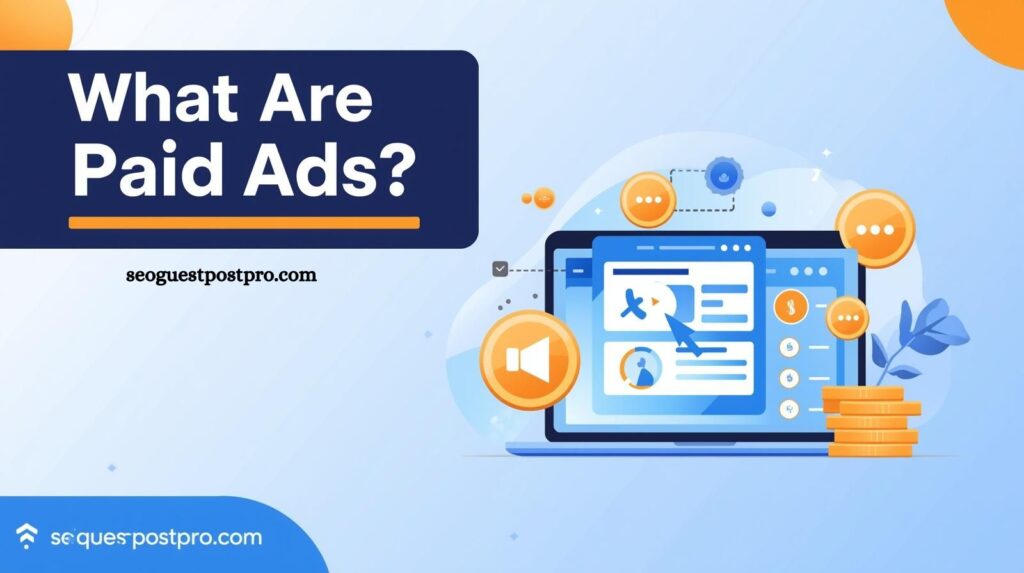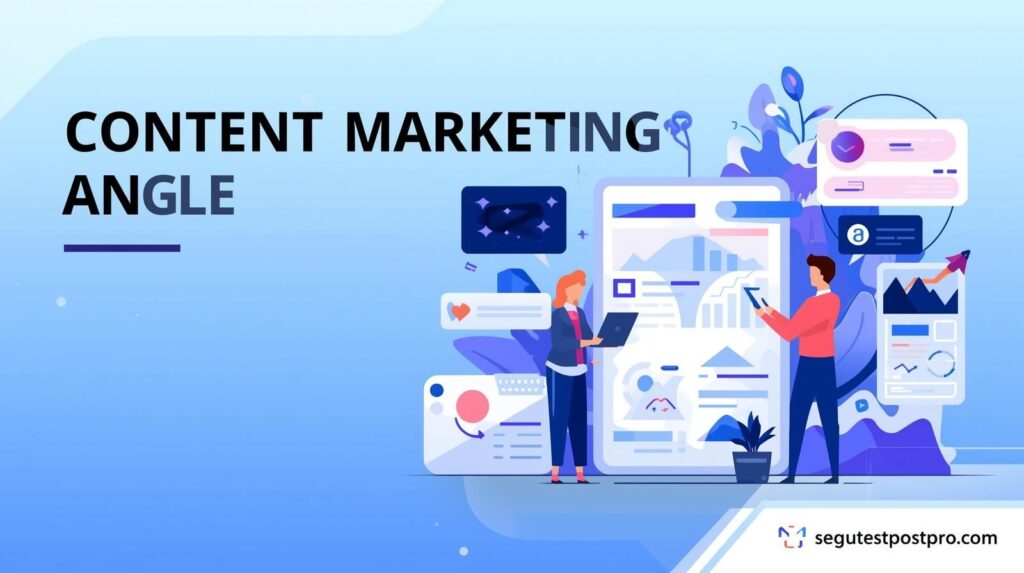Every marketer faces this tough question — Should I invest in guest posting or run paid ads?
It’s a dilemma almost every business owner goes through. On one hand, paid ads promise instant clicks and quick visibility, but the moment your budget stops, so does your traffic. On the other hand, guest posting builds lasting SEO value through backlinks, organic rankings, and authority, but it takes time and strategy. That’s why the debate of Guest Posting vs Paid Ads has become one of the most important questions in digital marketing today.
The pain point is simple: businesses need growth, but they also need sustainable ROI. Spending thousands on Google Ads, Facebook advertising, or display ads might bring short-term spikes, yet many founders quickly realize the cost per click keeps rising while results vanish overnight. Guest posting, however, creates long-term value — once your article is live on a high-DA website, it continues to bring traffic, leads, and brand trust for months or even years.
At SEO Guest Post Pro, we’ve worked with startups, SaaS companies, and e-commerce brands that faced this exact challenge. Some came to us after exhausting budgets on paid advertising campaigns. Others were already investing in SEO but needed more authority. By balancing guest posting SEO strategies with carefully tested paid campaigns, we’ve helped businesses build brand visibility that doesn’t disappear overnight.
This blog will break down the real differences between guest posting vs paid ads, highlighting cost, traffic quality, long-term vs short-term ROI, and how to decide the best path for your business.
What is Guest Posting?
Guest posting, in simple terms, is the practice of writing and publishing content on another website within your niche. Unlike paid ads that vanish when your budget runs out, guest posts stay live for months or even years, helping you earn lasting visibility, authority, and organic traffic.
When done right, guest posting SEO is one of the most powerful strategies for building high-quality backlinks and improving search rankings. Every backlink from a trusted site acts like a vote of confidence in the eyes of Google, pushing your website higher in search results.
For businesses, the real value lies in guest posting opportunities—getting your content featured on industry-relevant websites with real traffic and domain authority. The more you tap into a strong guest posting network, the faster you can expand your reach, attract new customers, and strengthen your brand authority online.
👉 Check our Guest Posting Services to see how we place brands on real high-DA websites with proven results.
Here’s a quick comparison of free guest posting sites vs premium placements:
- ✅ Free Guest Posting Sites:
- Easy to access
- Usually low domain authority
- Limited long-term SEO value
- Easy to access
- ⭐ Premium Guest Posting Placements:
- High Domain Authority (DA 40–90+)
- Niche-relevant traffic
- Better SEO impact and brand visibility
- Guaranteed live link delivery
- High Domain Authority (DA 40–90+)
The choice is simple: while free sites may look attractive for beginners, premium guest posting is what actually delivers ROI, strong backlinks, and measurable organic growth.
What Are Paid Ads?

Paid ads, simply put, are online advertisements where you pay platforms like Google Ads, Facebook advertising, and display ad networks to show your business in front of a targeted audience. Instead of waiting for organic rankings, paid ads buy you visibility through pay per click (PPC) campaigns, banner ads, or boosted posts.
The biggest appeal of paid ads is speed. Within hours of launching a campaign, your brand can appear at the top of Google search results or directly inside a user’s social media feed. This is why many businesses use boosting vs paid ads strategies on platforms like Facebook or Instagram — they want instant engagement without waiting for SEO to kick in.
But here’s the trade-off: while paid ads can generate traffic quickly, they stop the moment you pause your budget. As the saying goes, “Google paid ads deliver instant clicks but disappear once the budget runs out.”
This creates the classic debate of SEO vs paid ads or organic vs paid ads. SEO and guest posting bring long-term, compounding results, whereas paid ads bring short-term bursts of traffic. For some businesses, a combination of both works best.
That’s why many of our SEO clients balance organic guest posting with PPC campaigns. The guest posts build authority and backlinks for long-term SEO, while paid ads support immediate traffic goals like product launches, seasonal offers, or brand awareness.
Paid ads are powerful, but they are best used as part of a bigger growth strategy — not the only strategy.
Guest Posting vs Paid Ads ROI
Subsection 1: Cost Comparison
When comparing guest posting cost vs pay per click (PPC), the difference is clear. With paid ads, you pay for every single click, and in competitive industries, costs can reach $5–$20 per click — sometimes even more. That means if your ad gets 1,000 clicks, you’ve already spent thousands of dollars, regardless of whether those clicks convert.
Guest posting, however, is an investment that continues to pay off. You pay once to publish your content on a high-authority website, and that article keeps driving referral traffic, brand exposure, and SEO value without additional spend. Over time, this makes guest posting far more cost-effective compared to the never-ending bills of PPC.
👉 Check our Pricing Page to see how affordable guest posting packages stack up against paid advertising costs.
Subsection 2: Traffic Quality
There’s also a huge difference in traffic quality.
- Guest posts bring in readers who are already engaged in your niche. Since your article is published on an industry-relevant website, the visitors are more likely to trust your brand, click through, and convert. Plus, every guest post builds long-term organic backlinks that strengthen your SEO rankings.
- Paid ads, in contrast, can drive thousands of clicks overnight, but the audience isn’t always warm or relevant. Ads often capture curiosity clicks, and bounce rates can be high. That’s why many businesses see short bursts of visitors from ads but little long-term engagement.
Subsection 3: Longevity of Results
This is where guest posting truly outshines paid advertising.
A well-placed guest post can continue bringing SEO value, referral traffic, and leads for months or even years after it’s published. Each backlink strengthens your domain authority, helping you rank higher in Google long after the initial investment.
Paid ads, on the other hand, stop the moment your budget stops. There’s no residual value — no backlinks, no organic rankings, no long-term visibility. The money you spend on ads is gone the second the campaign ends.
That’s why marketers who focus only on ads often feel stuck in a cycle of spending more without building real authority. Guest posting breaks that cycle by delivering compounding results.
SEO Benefits of Guest Posting
One of the biggest advantages of guest posting is its direct impact on SEO. Unlike paid ads that only drive temporary clicks, guest posts create backlinks from high-authority domains — and backlinks remain one of the strongest Google ranking factors.
Every backlink tells search engines that your website is trusted and relevant. Tools like Ahrefs or SEMrush show clearly how websites with a strong guest posting strategy consistently have higher domain authority and stronger keyword positions compared to competitors relying only on ads.
Another benefit is keyword optimization. Through keyword research, you can strategically target search terms inside your guest posts that your audience is already searching for. For example, instead of relying on generic phrases, guest posting allows you to naturally place long-tail keywords in high-quality content that lives on niche websites. This signals both relevance and authority to search engines.
It’s also important to mention what not to do. Many beginners make the mistake of keyword stuffing, cramming the same phrase unnaturally into content. This not only looks unprofessional but can also harm SEO. A proper guest posting strategy focuses on natural, human-centered writing that builds value first, with SEO benefits as a natural outcome.
Over time, guest posts published on reputable sites don’t just generate referral traffic — they strengthen your overall SEO foundation. As backlinks accumulate, your own pages rank higher, your organic visibility grows, and you start to outrank competitors in Google search.
👉 Explore our Link Building Services to see how we use guest posting and authority backlinks to fuel long-term SEO growth.
Content Marketing Angle

Guest posting doesn’t stand alone — it fits perfectly into a larger content marketing strategy. When you publish articles on high-authority sites, you’re not just earning backlinks; you’re creating assets that can be repurposed and amplified across multiple channels.
For example, a well-placed guest article can fuel email marketing campaigns, where you share published content with your subscriber list to build trust and authority. The same guest post can be referenced in influencer marketing collaborations, showing that your brand is already featured on respected platforms.
Guest content can also support video marketing. Many brands take insights from published guest posts and turn them into YouTube explainers or LinkedIn shorts, giving the same idea wider reach. Even user generated content—like customers sharing your featured articles on social media—becomes part of the growth loop.
And let’s not forget automation. Smart marketers often plug guest posts into drip campaigns, nurturing leads by sending them educational content over time. A potential client who reads your guest article today may convert into a paying customer after a few valuable follow-up emails.
In short, guest posting is the backbone of a strong content marketing ecosystem. It provides high-quality, evergreen content that multiplies its value across email, social, video, and influencer channels.
👉 See how we design Content Marketing Campaigns that amplify guest posts and turn them into multi-channel growth engines.
Case Study Snapshot
Real-world results speak louder than theory. One of our SaaS clients came to us frustrated after spending heavily on paid ads with little long-term return. Their ad campaigns generated clicks, but once the budget stopped, the traffic disappeared overnight.
We shifted their focus toward a targeted guest posting SEO strategy. By securing placements on niche-relevant, high-authority websites, we built strong backlinks, improved keyword rankings, and created a steady stream of referral traffic. Within just six months, the client reduced their ad spend by 40% while their organic traffic surged by over 300%.
The best part? Those guest posts are still live today, continuing to drive new leads without any additional investment.
👉 Want to see more examples of how businesses transformed their growth with guest posting? Explore our full Case Studies collection.
Frequently Asked Questions
Q1: Is guest posting more cost effective than paid ads?
Yes — guest posting is generally far more cost effective than running paid ads. With ads, you pay for every single click, and the cost can increase rapidly in competitive industries. Once the budget is paused, the traffic stops. Guest posting, on the other hand, is a one-time investment that continues to deliver value for months or even years through backlinks, organic rankings, and referral traffic.
Q2: Do backlinks from guest posting really help SEO?
Absolutely. Backlinks remain one of Google’s most important ranking signals. When your website earns a link from a high-authority, niche-relevant site, it tells search engines that your content is trustworthy. Over time, this strengthens your domain authority, improves keyword rankings, and boosts organic visibility. That’s why guest posting SEO is considered a long-term growth strategy instead of a short-term tactic.
Q3: How long does guest posting take to show results compared to PPC?
The difference lies in timing. PPC ads generate traffic almost instantly, but the results vanish once your budget stops. Guest posting, however, is a long-term strategy. Depending on your niche and competition, you may start seeing ranking improvements within 6–12 weeks. The key difference is sustainability: PPC brings short bursts of traffic, while guest posts compound over time and build lasting authority.
Conclusion
At the end of the day, the choice between guest posting vs paid ads comes down to your goals. Paid ads are great for instant clicks, quick campaigns, or short-term promotions — but the moment the budget stops, so does the traffic. Guest posting, on the other hand, builds sustainable ROI through backlinks, organic rankings, and long-term brand authority.
If your business wants lasting growth, stronger SEO, and authority that compounds over time, guest posting is the smarter investment.
👉 If you’re ready to build lasting SEO authority, our Guest Posting Services can put your brand on high-DA websites today.


